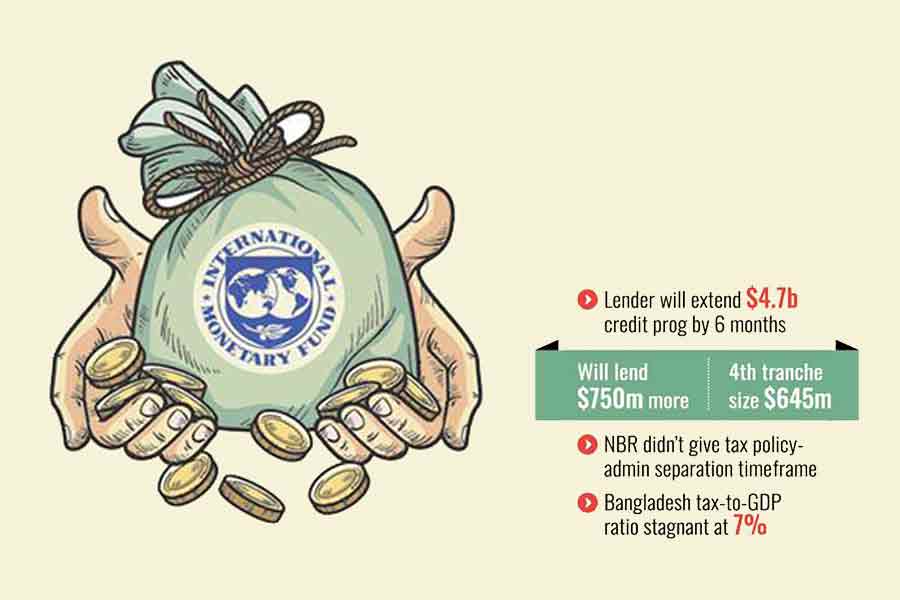
Published :
Updated :

The International Monetary Fund (IMF) will extend the ongoing $4.7-billion loan programme for Bangladesh by six months until December 2026, officials have said.
It was decided at the two-week-long third review of the programme held this month after the multilateral lender agreed to provide an additional $750 million for Bangladesh amid significant macroeconomic challenges,
they added.
A senior Finance Division official told The Financial Express Bangladesh would get $645 million in the fourth tranche of the loan, where $80 million would be added from the proposed $750 million additional fund.
He said $80 million would be added with each of the three more regular instalments scheduled to be available in May and October next year and May 2026.
The official, referring to the meeting decision, said the remaining amount of the additional fund would be released by December 2026 through an extension of the programme.
According to another official concerned, during the review meeting, the IMF team was very adamant to get a commitment from the government regarding the separation of the tax policy and the tax administration.
But National Board of Revenue (NBR) officials did not agree to give a specific date by which the separation would be completed. They made a commitment to place a roadmap for this by March next year.
According to them, the IMF wants the completion of the separation as early as possible, preferably by June next.
"In the last review, it was found that almost all the targets were met, except for revenue where there was a huge gap," a senior Finance Division official said.
The IMF believes separating the tax policy from the administration will help significantly improve revenue generation, which is why they want immediate completion of the procedure, he said.
In Bangladesh, the tax-to-GDP (gross domestic product) ratio remains stagnant at 7 per cent for a long time, much lower than that of the neighbouring countries and one of the lowest worldwide.
The IMF thinks revenue mobilisation efforts need to be prioritised for two reasons. One, Bangladesh would not have the required fiscal space to raise social spending and capital spending if revenue is not in place.
The other reason is that Bangladesh is progressing to become a middle income country. Beyond an emerging market and with such low revenue generation, the country would not be able to maintain high growth and low inflation.
Finance Adviser Dr Salehuddin Ahmed recently said the matter of the tax policy-administration separation would be raised before the interim government's Advisory Council soon, but did not give a time frame.


 For all latest news, follow The Financial Express Google News channel.
For all latest news, follow The Financial Express Google News channel.